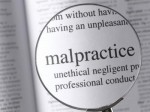What Do You Do When Your Client Thinks They Can Do Better?
There may be a time when a client wants to speak directly with the other side simply hoping to move the process forward. Truth be told, I’ve been there as a client. It felt as if my legal matter wasn’t progressing as fast as I thought it should and it seemed to me that the attorneys were the ones getting in the way. I started to wonder if I couldn’t move things along by just having a one on one with the other side. So, what does a good attorney do?





























